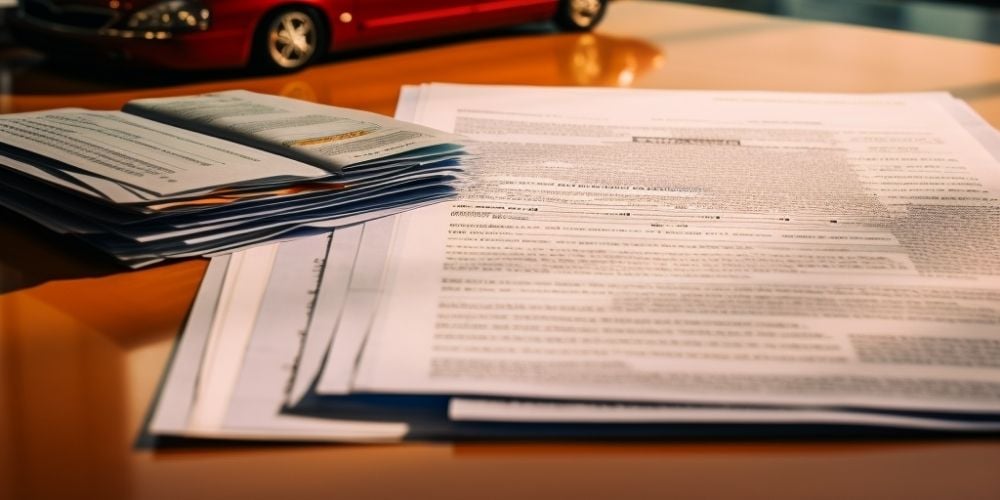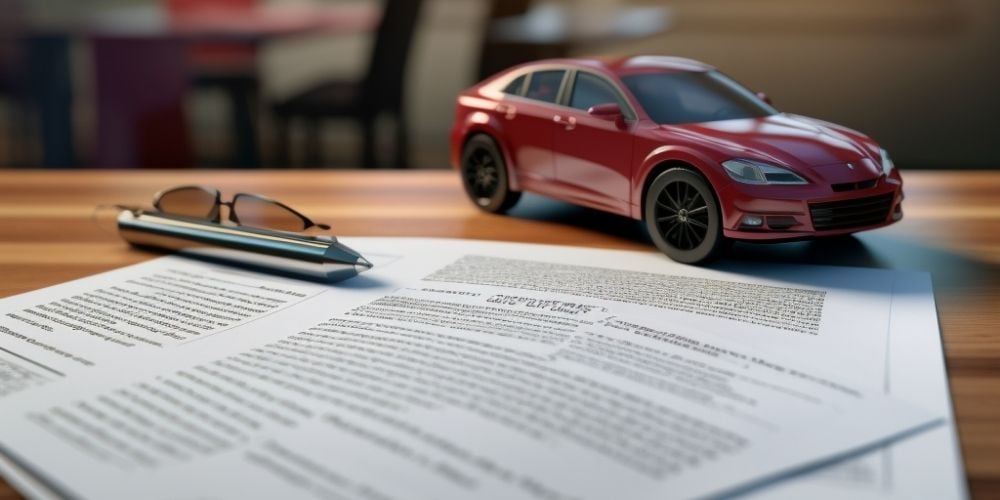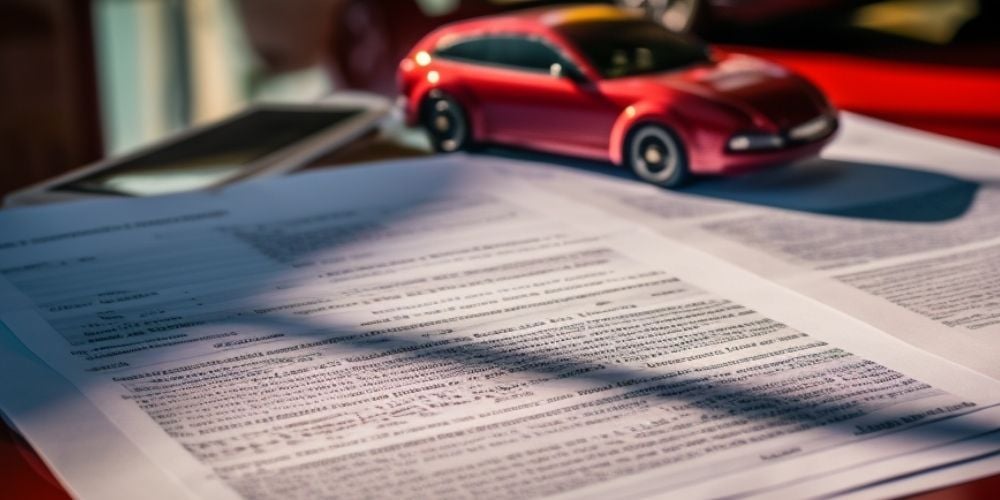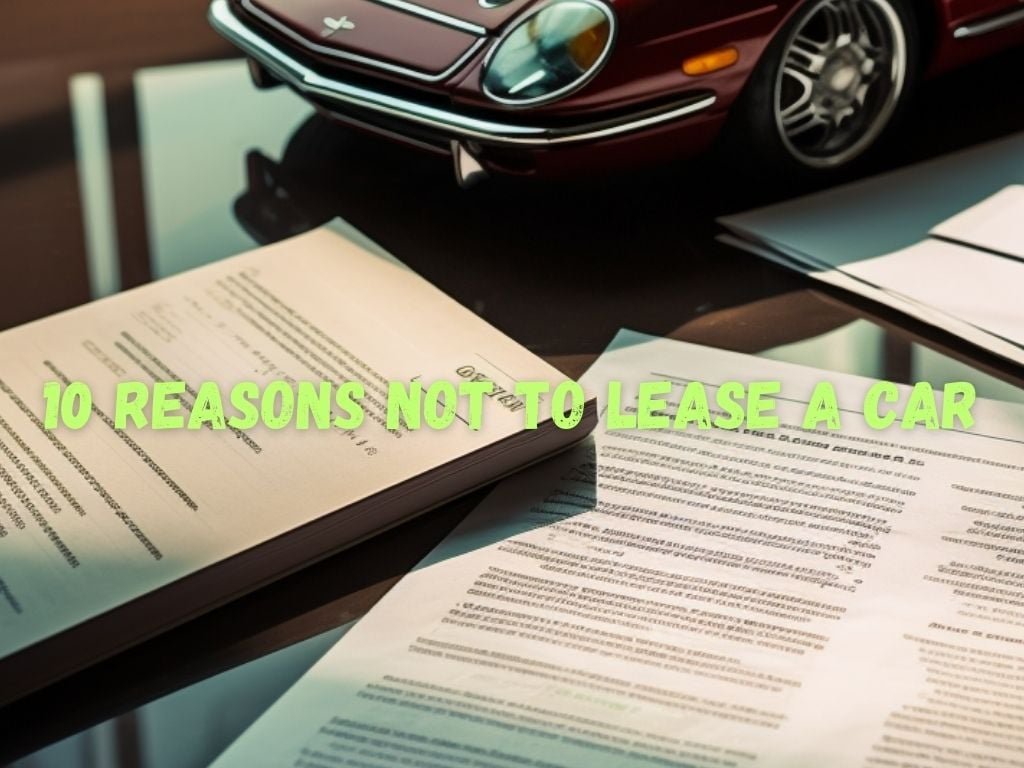Leasing a car has become an increasingly popular option for many drivers.
With its promise of lower monthly payments and the allure of driving a brand-new vehicle every few years, it’s easy to see why.
However, before you jump on the leasing bandwagon, it’s important to consider the downsides as well.
In this article, we will explore 10 reasons why leasing a car may not be the right choice for you.
10 Reasons Not To Lease a Car (An Eye Opening Guide)
High Costs
When it comes to car leasing, the initial appeal of lower monthly payments can be deceiving.
While it’s true that lease payments are generally lower than loan payments for buying a car, there are a number of costs associated with leasing that can quickly add up.
For starters, most leases require a substantial down payment, which can be a significant upfront expense.
Additionally, leasing companies often charge various fees, such as acquisition fees and disposition fees, that can further increase the overall cost of leasing.
Furthermore, when taking a car lease, you’re essentially paying for the vehicle’s depreciation during the lease term.
This means that at the end of the lease, you don’t have any ownership in the car. Instead, you have essentially rented a depreciating asset for a set period of time.
In the long run, this can be more expensive than buying a car outright, especially if you plan on keeping the vehicle for an extended period.

Lack of Ownership
Another significant drawback of leasing a car is the lack of ownership. When you lease a vehicle, you don’t own it – you’re simply renting it from the leasing company.
This lack of ownership comes with a number of limitations. For example, you may be restricted when it comes to making modifications or customizations to the vehicle.
This can be frustrating for those who like to personalize their cars or prefer to make enhancements for practical purposes.
Furthermore, since you don’t own the leased car, you have no equity that can be tapped into.
With ownership, you have the option to sell the car or trade it in if the need arises. Leasing limits your ability to use the vehicle as an asset or leverage its value in any way.
Restrictions and Limitations
Leasing a car often comes with a range of restrictions and limitations that can impact your driving experience.
One common limitation is the mileage cap. Leasing contracts typically include a mileage allowance, and exceeding this limit can result in costly charges.
If you have a long commute or frequently take road trips, leasing may not be the best option for you, as the mileage restrictions can be quite strict.
Additionally, leasing contracts often include guidelines for the vehicle’s condition at the end of the lease term.
You may be required to pay for any excessive wear and tear on the car, which can add unexpected expenses. This can be particularly frustrating if you have a family or tend to use your vehicle for more rugged purposes.
End of Lease Hassles
Returning a leased vehicle can often come with its own set of challenges and headaches. When the lease term expires, you will be responsible for returning the car to the leasing company in the agreed-upon condition.
Any damages beyond normal wear and tear can result in additional charges. This can lead to unexpected expenses and disputes, particularly if you and the leasing company have different assessments of the vehicle’s condition.
Furthermore, there is the hassle of finding a new vehicle once your lease ends. If you choose to lease again, you may find yourself in a continuous cycle of lease payments without ever actually owning a car.
On the other hand, if you decide to purchase a car, you may have higher monthly loan payments initially, but once the car loan is paid off, you will have the freedom from monthly car payments.
Depreciation and Negative Equity
Depreciation is an important factor to consider when deciding whether to lease or buy a car. Vehicles, especially new ones, tend to depreciate rapidly in their first few years.
When you lease a car, you are essentially paying for the depreciation that occurs during your lease term. This means that you are not building any equity in the vehicle.
Additionally, if the value of the car depreciates more rapidly than anticipated, you may find yourself in a state of negative equity – owing more on the car than it is worth.
This can create financial difficulties if you need to get out of the lease early or if you decide to buy the car at the end of the lease term.

Limited Flexibility
Leasing a car can significantly limit your flexibility and lifestyle choices. Most leases come with predetermined terms that are difficult to modify.
If your circumstances change and you need to end the lease early, you will likely face early termination fees, which can be substantial.
This lack of flexibility can be a major drawback for those who prefer the option to make changes to their vehicles or have the freedom to switch models or brands as needed.
Additionally, leasing a car can also limit your ability to customize the vehicle to fit your preferences and needs.
Many people enjoy the process of personalizing their cars with aftermarket additions or modifications.
When leasing, you may find yourself unable to make these customization choices, since the car ultimately belongs to the leasing company.
Lack of Tax Benefits
For some, tax benefits can be an important consideration when deciding whether to lease or buy a car.
When you purchase a car, you may be eligible for certain tax deductions, depending on your personal situation.
However, these tax benefits typically do not apply to leased vehicles. Leasing companies generally retain the tax benefits associated with ownership and do not pass them on to the lessee.
Limited Insurance Options
Car insurance is an essential requirement for any vehicle owner.
However, when leasing a car, you may find that insurance costs are higher compared to owning a car.
Leasing companies typically require higher limits of liability coverage, which can result in higher premiums.
Additionally, some insurance providers may charge higher rates for leased vehicles, given the increased risk associated with these types of arrangements.
Less Freedom to Sell or Trade
One of the advantages of owning a car is the ability to sell or trade it in when desired.
When you lease a car, you surrender this flexibility. You are bound by the terms of the lease agreement, which usually includes a set lease term.
While there may be options to terminate the lease early, these often come with costly penalties.
Leasing ultimately limits your ability to sell or trade your vehicle when it suits your needs or preferences.
Long-Term Costs
While leasing a car may initially seem like an affordable option, it’s important to consider the long-term costs. If you continuously lease vehicles without ever owning one, you will always have a monthly lease payment.
On the other hand, if you decide to purchase a car, you may have higher monthly loan payments initially, but once the loan is paid off, you will have the freedom from monthly car payments.
Therefore, leasing can be more costly in the long run, as you continually incur expenses without ever truly owning a vehicle.

Alternative Options:
If you’ve decided that leasing a car isn’t the right choice for you, there are a few alternatives to consider.
Buying a used car
Used cars can be a more affordable option than buying a new one, and they also tend to depreciate at a slower rate.
With a used car, you have the option to make modifications or customizations, and you also have the option to sell or trade the car whenever you wish.
Financing a car
Financing a car allows you to own the vehicle outright and build equity over time.
While the monthly payments may be higher than leasing, you have the freedom to make modifications and drive the car as much as you want without worrying about mileage limits.
Car-sharing services
Car-sharing services, such as Zipcar or Car2Go, allow you to rent a car by the hour or day.
This option can be more cost-effective for those who only need a car occasionally, and you have the flexibility to choose from a variety of cars and models.
FAQs:
Is leasing a car cheaper than buying?
Leasing can result in lower monthly payments compared to buying, but it’s important to consider the total costs over time.
With leasing, you have ongoing lease payments and limited warranty coverage. Alternatively, when you buy a car, you have higher monthly payments initially, but once the loan is paid off, you have the freedom from monthly car payments.
Can I negotiate the terms of a lease agreement?
Yes, it’s possible to negotiate some terms of a lease agreement, such as the down payment, monthly payment, and mileage limit.
However, keep in mind that not all leasing companies will be willing to negotiate, and some may have strict guidelines and fees.
What happens if I exceed the mileage limits on a leased vehicle?
If you exceed the mileage limit on a leased vehicle, you will be charged additional fees at the end of the lease term.
These fees can be costly, so it’s important to estimate your driving needs accurately and negotiate higher mileage limits if necessary.
Conclusion
Although car leasing may have its advantages, it’s essential to consider the downsides before committing to a lease agreement.
The financial concerns, lack of ownership, restrictions and limitations, end-of-lease hassles, and limited flexibility are just a few of the reasons why leasing a car may not be right for everyone.
By carefully evaluating your financial situation, driving habits, and lifestyle preferences, you can make an informed decision that aligns with your needs and goals.
Remember, leasing may work well for some, but it’s crucial to weigh the pros and cons to ensure the best long-term outcome for your financial health and driving satisfaction.


 Tags:
Tags:










